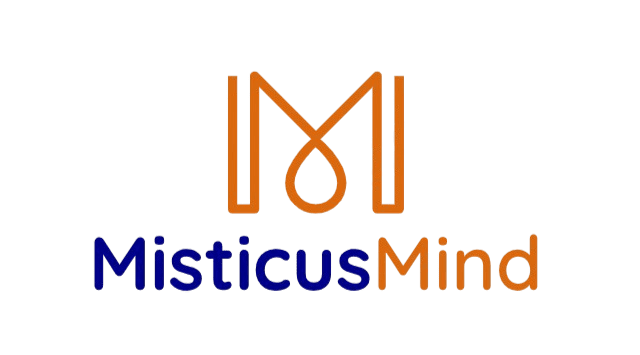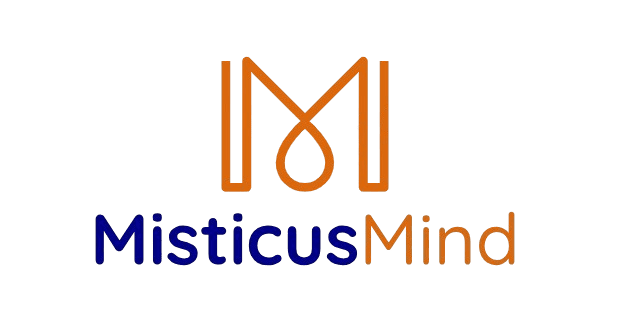Top AI Legal Research Tools Every Lawyer Should Try in 2025


The legal world is changing faster than ever before. Gone are the days when lawyers spent countless hours digging through dusty law books or scrolling endlessly through online databases. Today’s legal professionals are embracing artificial intelligence tools that can research cases, analyze documents, and predict outcomes in minutes rather than hours. But with so many AI legal research platforms launching in 2025, choosing the right one for your practice can feel overwhelming. Which tools actually deliver on their promises? What features should you prioritize? And most importantly, how can these technologies help you serve clients better while boosting your firm’s efficiency? This comprehensive guide will walk you through the top AI legal research tools every lawyer should consider in 2025, breaking down their unique features, pricing models, and real-world applications that are revolutionizing how legal work gets done.
Why AI-Powered Legal Research Is Now Essential
The shift from traditional legal research to AI-powered solutions isn’t just a trend anymore—it’s become an absolute necessity for competitive law practices in 2025. Lawyers who still rely solely on manual research methods are finding themselves at a significant disadvantage, spending 3-4 times longer on case preparation while their AI-equipped competitors deliver faster, more comprehensive results. The modern legal client expects quick turnarounds, thorough analysis, and cost-effective services that simply aren’t possible with old-school research methods.
AI research tools have fundamentally transformed what’s possible in legal practice today. These platforms can process thousands of cases, statutes, and regulations in seconds, identifying relevant precedents that might take human researchers days to uncover. More importantly, they’re getting smarter every month, learning from user interactions and continuously improving their accuracy rates.
The legal landscape has evolved to prioritize precision, speed, and client value above all else. Courts are moving faster, clients are more demanding, and competition between firms has never been fiercer. AI legal research tools provide the competitive edge that modern lawyers need to stay relevant. They enable practitioners to offer more thorough legal analysis, faster case turnaround times, and more competitive pricing—all while maintaining the highest standards of accuracy and professional service that clients expect.
What Makes an AI Legal Research Tool Stand Out?
Not all AI legal research platforms are created equal, and understanding the key differentiators can save you thousands of dollars and countless hours of frustration. The best tools in 2025 offer natural language search capabilities that let you ask complex legal questions in plain English, rather than forcing you to learn complicated Boolean search syntax. They should provide contextual accuracy that understands the nuances of legal language and can distinguish between similar but distinct legal concepts.
Deep database access is another crucial feature—your AI tool should tap into comprehensive collections of case law, statutes, regulations, and secondary sources from multiple jurisdictions. Integration with popular drafting tools like Microsoft Word or Google Docs ensures seamless workflow, while robust regulatory compliance features protect sensitive client data. The standout platforms also offer real-time updates as new cases are decided and laws change.
What really separates the premium AI legal research tools from basic offerings are their unique differentiators. Expert-verified content ensures that AI-generated summaries and analyses have been reviewed by qualified legal professionals. Advanced privacy technology goes beyond basic encryption to offer features like automatic redaction and anonymization. Some platforms even provide workflow integration that connects research directly to case management systems, billing software, and client communication tools, creating a unified legal practice management experience.
Top AI Legal Research Tools in 2025 — Quick Comparison
The AI legal research landscape in 2025 offers specialized solutions for every type of legal practice, from solo practitioners handling local matters to large international firms managing complex cross-border transactions. Whether you focus on litigation, corporate law, tax planning, or regulatory compliance, there’s an AI tool designed specifically for your needs and workflow requirements.
Here are the top 10 AI legal research tools that are making waves in 2025:
1. Harvey AI: Specializes in complex litigation support and regulatory analysis. Excels at processing massive document sets and identifying key legal issues that human researchers might miss. Integrates seamlessly with major law firm technology stacks and offers advanced predictive analytics for case outcome forecasting.
2. CoCounsel by Thomson Reuters: Built on cutting-edge language models, provides comprehensive research across multiple practice areas. Generates detailed legal memos and briefs with proper citations. Offers excellent customer support and training resources for teams transitioning to AI-powered research.
3. Westlaw Edge AI: Leverages decades of legal data to provide unmatched depth in case law research. Excels at finding obscure precedents and tracking legal trends over time. A natural choice for firms already using Thomson Reuters products.
4. Lexis+ AI: Focuses on delivering precise, context-aware legal research with strong citation validation. Shines in appellate brief preparation and complex statutory interpretation. Offers robust analytics on judge behavior patterns and opposing counsel strategies.
5. Blue J Legal: Specializes in tax and employment law, using machine learning to predict case outcomes with remarkable accuracy. Particularly valuable for tax planning and compliance work. Predictive models validated against thousands of real case outcomes.
6. Hebbia: Known for powerful document analysis capabilities, processes contracts, regulations, and case files at incredible speed. Excels at due diligence work and regulatory compliance research. Features a conversational natural language interface.
7. BharatLaw AI: Designed for Indian legal practice, provides comprehensive coverage of Indian statutes, case law, and regulatory updates. Offers voice-enabled research and multilingual support, with specialized modules for corporate law, taxation, and constitutional matters.
8. ROSS Intelligence: Focused on bankruptcy and litigation support, provides intelligent case law research with natural language processing. Offers detailed competitive intelligence and strategy insights, with AI models trained on litigation patterns and outcomes.
9. Lawfyi.io: A cost-effective solution for small and medium firms, offers essential AI research features without enterprise-level complexity. Provides solid case law research and document drafting assistance with a simple interface.
10. Legal Genius: Combines research, drafting, and practice management in one integrated solution. Offers personalized AI assistants trained on your firm’s specific practice areas and preferences. Provides exceptional value through its all-in-one approach and competitive pricing.
Why Choose Legal Genius?
Among all these excellent options, Legal Genius stands out for its unique combination of comprehensive features, user-friendly interface, and exceptional value proposition. Unlike other platforms that excel in narrow specialties, Legal Genius provides a complete legal AI ecosystem that grows with your practice. Its personalized AI assistants learn your research patterns and preferences, becoming more valuable over time. The platform’s integration capabilities, robust security features, and responsive customer support make it the ideal choice for forward-thinking legal professionals who want one powerful tool rather than multiple specialized applications.
Deep Dive — Features and Use Cases of Leading AI Tools
Understanding the specific capabilities of modern AI legal research platforms helps you make informed decisions about which tools best serve your practice needs and client requirements.
Natural Language Search: Modern AI tools let you ask complex legal questions exactly as you would phrase them to a colleague. Instead of constructing elaborate Boolean searches, you can type “What are the recent precedents for trademark infringement in e-commerce?” and get relevant results instantly. These systems understand legal context and can differentiate between similar concepts like “negligence” and “gross negligence” based on your specific query.
Predictive Analytics: Advanced platforms analyze historical data to forecast case outcomes, judge ruling patterns, and opposing counsel strategies. This feature proves invaluable for risk assessment and client counseling. Some tools can predict settlement ranges based on similar cases and provide confidence intervals for their predictions.
Automated Drafting: Leading AI platforms generate first drafts of legal documents, including contracts, motions, and court filings with proper citations. These tools don’t replace lawyer judgment but provide solid starting points that save hours of initial drafting time. The best systems learn your firm’s style preferences and client-specific requirements.
Workflow & Integration: Top-tier tools sync seamlessly with Microsoft Word, document management systems, and case management software. This integration eliminates the need to switch between multiple applications and ensures that research insights flow directly into client work products.
Anonymization & Privacy: Professional-grade platforms offer sophisticated data protection features, including automatic redaction of sensitive information and compliance with SOC 2, GDPR, and other regulatory standards. These features protect both client confidentiality and your firm’s reputation.
Multilingual & Jurisdictional Support: Global platforms provide research capabilities across multiple legal systems and languages. This feature is essential for international practices and cross-border transactions where understanding foreign law precedents can make or break a case.
Voice Summaries & Audio Outputs: Innovative tools like BharatLaw AI offer audio features that let busy practitioners listen to case summaries while commuting or multitasking. This capability transforms dead time into productive research opportunities.
How to Choose the Right AI Legal Research Tool for Your Practice
Selecting the optimal AI legal research platform requires careful consideration of your firm’s specific needs, workflow patterns, and budget constraints. The key is matching tool capabilities with your actual practice requirements rather than being swayed by impressive-sounding features you’ll never use.
Start by mapping your current research workflow and identifying the biggest pain points. Do you spend too much time on initial case law searches? Are document review and analysis consuming excessive billable hours? Does your team struggle with citation formatting and accuracy? Understanding these specific challenges helps you prioritize features when evaluating different platforms.
Budget considerations extend beyond monthly subscription costs to include training time, integration expenses, and potential productivity disruptions during implementation. SaaS platforms typically offer predictable monthly costs, while enterprise solutions may require significant upfront investments but provide better long-term value for larger firms. Consider both direct costs and the opportunity cost of time spent learning new systems.
For Solo & Small Firms: Tools like Clio Duo, BharatLaw AI, and Lawfyi.io prioritize ease of use and cost-efficiency. These platforms offer essential AI features without overwhelming complexity or enterprise-level pricing. They typically require minimal training and can be implemented quickly without disrupting existing workflows.
For BigLaw & Enterprise Firms: Platforms like Harvey, CoCounsel, Hebbia, and Bloomberg Law AI provide the scale, analytical depth, and advanced features that large firms require. These tools offer sophisticated predictive analytics, extensive database coverage, and robust integration capabilities that justify their premium pricing.
For Specialized Practices: Focused tools like Blue J Legal for tax work, LEGALFLY for cross-border matters, and VIDUR AI for Indian compliance offer deep expertise in specific practice areas. These platforms often provide better results than generalist tools for specialized research needs.
The Value Add — Advanced Features You Might Be Missing
Beyond basic research capabilities, next-generation AI platforms offer sophisticated features that can dramatically enhance your practice efficiency and client service quality, though many lawyers aren’t taking advantage of these powerful tools yet.
Custom AI Agent Building: Advanced platforms let you create specialized AI assistants trained on your firm’s specific practice areas, client types, and research patterns. These custom agents become more valuable over time as they learn your preferences and can provide increasingly targeted assistance.
Real-Time Statutory Alerting & Judge Analytics: Cutting-edge tools monitor regulatory changes and court decisions relevant to your cases, sending automated alerts when new developments affect your clients. Judge analytics features provide insights into specific judges’ ruling patterns, helping you tailor arguments and strategies accordingly.
Prompt Libraries & Template Sharing: Progressive firms are building repositories of effective AI prompts and research templates that teams can share and refine. This collaborative approach maximizes the value of AI investments and ensures consistent quality across all firm research output.
Case Precedent Visualization Graphics: Some platforms create visual maps showing how legal precedents connect and evolve over time. These graphics help lawyers understand complex legal landscapes and identify emerging trends that might affect future cases.
Multi-Platform & Smartphone Research: Modern AI tools offer full functionality on mobile devices, enabling productive research during travel, court waiting periods, or client meetings. This accessibility transforms previously wasted time into valuable research opportunities.
Key Trends Shaping AI Legal Research in 2025
The AI legal research landscape continues evolving rapidly, with several major trends reshaping how lawyers access and analyze legal information throughout 2025.
Explosion of Specialized Language Models: We’re seeing a surge in smaller, specialized AI models trained specifically on regional laws and practice areas. These focused tools often outperform general-purpose AI systems for specific legal tasks, offering more accurate results and better understanding of local legal nuances.
Client-Facing AI Portals: Progressive firms are implementing AI-powered client portals that enable self-serve legal research and initial case intake. These tools help clients understand their legal situations while freeing lawyers to focus on higher-value advisory work.
Seamless Integration Experiences: The best platforms now combine research, drafting, and compliance checking in unified workflows. This integration eliminates the need to switch between multiple tools and ensures that research insights flow naturally into client deliverables.
Regulatory Scrutiny & Privacy Technology: Increasing attention from regulators is driving innovation in privacy-preserving AI technologies. Law firms are demanding stronger data protection features, spurring development of advanced anonymization and encryption capabilities.
Quick FAQ — AI Legal Research Tools (2025 Edition)
Understanding common questions about AI legal research tools helps lawyers make informed decisions about adopting these transformative technologies in their practices.
What’s the best AI tool for legal research in India? BharatLaw AI currently leads the Indian market with comprehensive coverage of Indian statutes, case law, and regulatory updates. It offers voice-enabled research, multilingual support, and specialized modules for corporate law, taxation, and constitutional matters. Alternative options include VIDUR AI for compliance-focused work and Legal Genius for firms wanting international capabilities alongside strong Indian law support.
Can AI tools replace traditional legal research jobs? AI tools are transforming rather than eliminating legal research roles. While AI can quickly identify relevant cases and statutes, human lawyers remain essential for analyzing complex legal issues, developing strategic arguments, and providing client counseling.
How secure is my client’s data? Reputable AI legal research platforms implement enterprise-grade security measures including end-to-end encryption, SOC 2 compliance, and strict data segregation protocols. Always verify that your chosen platform meets your jurisdiction’s specific confidentiality requirements and bar association guidelines.
Which tools support multilingual, cross-border matters? Global platforms like Legal Genius, Westlaw Edge AI, and Lexis+ AI offer strong multilingual capabilities and coverage of multiple legal systems. For specific regional expertise, specialized tools like LEGALFLY focus exclusively on cross-border legal research.
Are AI legal research platforms allowed in court filings? Most jurisdictions permit the use of AI research tools, but lawyers remain fully responsible for verifying the accuracy of any AI-generated content included in court filings. Some platforms offer special “court-ready” features that provide additional citation verification and accuracy checking.
How much does an advanced tool cost? Pricing varies dramatically based on features and firm size. Basic platforms start around $50-100 per user monthly, while enterprise solutions can cost $500+ per user. Consider total cost of ownership including training, integration, and potential productivity gains when evaluating options.
Conclusion
The legal profession stands at a pivotal moment where AI-powered research tools are no longer luxury add-ons but essential components of competitive legal practice. The platforms highlighted in this guide represent the cutting edge of legal technology, each offering unique advantages for different practice types and client needs.
Key Takeaways:
- Start with your specific needs: Map current workflow pain points before evaluating tools.
- Consider total cost of ownership: Factor in training time and integration expenses beyond subscription costs.
- Prioritize security and compliance: Verify that platforms meet your jurisdiction’s confidentiality requirements.
- Test before committing: Take advantage of free trials to evaluate real-world performance.
- Plan for the future: Choose platforms that can scale with your practice growth.
- Stay informed: Follow legal technology developments through specialized newsletters and forums.
For deeper exploration, consider reviewing demo pages for tools mentioned, subscribing to AI in Law newsletters, and accessing 2025 whitepapers on legal technology trends. Professional forums and bar association technology committees also provide valuable insights from practitioners who’ve successfully implemented these tools.
Experience The Future of Legal Research — Try TheLegalGenius.AI Today
Ready to transform your legal research capabilities and deliver exceptional client value? TheLegalGenius.AI combines comprehensive research tools, intelligent drafting assistance, and personalized AI agents in one powerful platform designed specifically for modern legal practice. Experience the difference that truly integrated AI legal technology can make for your firm’s efficiency, accuracy, and competitive advantage in today’s demanding legal marketplace.
Fill out the form below to learn more about our AI solutions and how they can benefit your organization.



